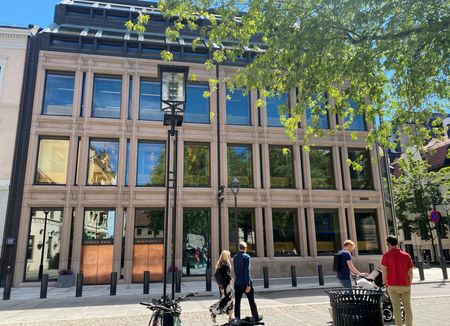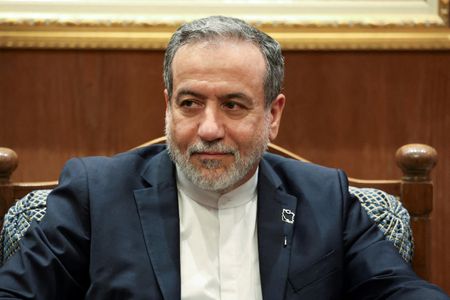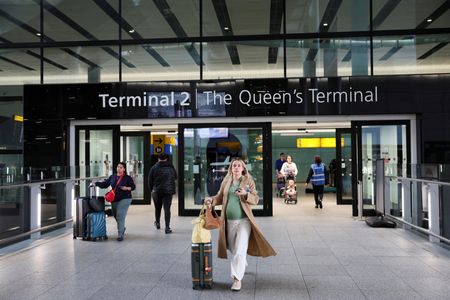By Gwladys Fouche
OSLO (Reuters) – Policymakers in Norway should be open to the idea that the country’s $1.8 trillion wealth fund be allowed to invest in weapons makers that are currently banned from its portfolio on ethical grounds, the central bank chief said on Thursday.
The fund follows rules decided by parliament that prevents it from buying stakes in the likes of Airbus, Boeing, BAE Systems, Lockheed Martin and Safran on the grounds that they contribute to the making of nuclear arms.
But those ethical rules, in place since 2004, may need to change, central bank Governor Ida Wolden Bache said in her annual address.
“We must be open to the possibility that what is considered to be ethically acceptable may change as the world again becomes marked by military rearmament and growing tensions between countries,” Bache said.
There is a growing debate in Norway about whether the fund should be allowed to invest in defence companies at a time when European countries are ramping up military investment.
The opposition Conservative Party has said the country should consider loosening the fund’s restrictions, arguing that it was no longer reasonable to exclude companies that produce equipment critical to Norway and its allies’ battle power.
The central bank operates the fund via Norges Bank Investment Management (NBIM). The fund’s ethical guidelines are decided by lawmakers, who seek to get a broad consensus to ensure the rules’ continuity.
Any changes in ethical guidelines would require thorough evaluation, however, to maintain confidence in the system and ensure that rules are not frequently altered, Bache said.
The issue could ultimately land on the desk of Norway’s recently appointed finance minister, Jens Stoltenberg, who until last October was the leader of the NATO military alliance and called for higher spending by allies on defence.
Separately, Bache said that Norway was nearing its first interest rate cut in five years.
(Reporting by Gwladys Fouche in Oslo; Editing by Hugh Lawson)











